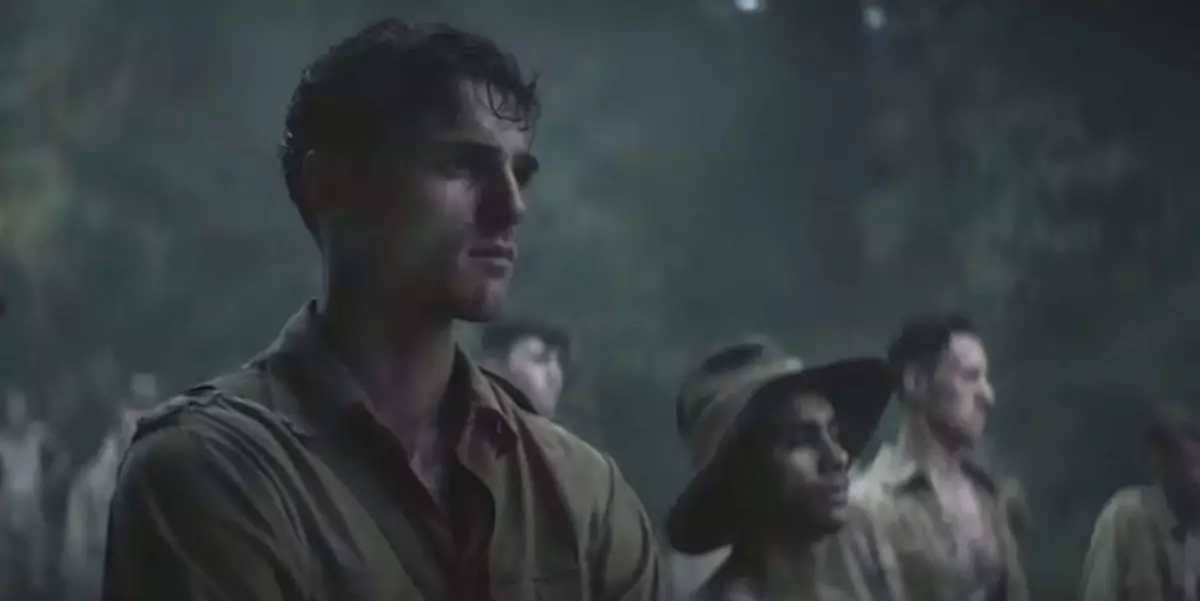The recent arrival of the Australian limited series “The Narrow Road to the Deep North” on Prime Video has stirred considerable interest, particularly among fans of quality drama. Adapted from Richard Flanagan’s Booker Prize-winning novel, this series encapsulates not only the harrowing experiences of World War II but also the profound emotional landscapes that accompany such turmoil. With its meticulous storytelling and rich character arcs, the series promises to be a compelling watch for audiences eager for both historical narratives and intense personal relationships.
Character Complexity and Intricate Storytelling
At the heart of the narrative is Lieutenant-Colonel Dorrigo Evans, portrayed by the talented Jacob Elordi. Dorrigo serves not merely as a soldier but as a symbol of human resilience amidst the greatest adversity. The show unfolds through a non-linear timeline, brilliantly capturing Dorrigo’s journey across three pivotal periods: his idyllic life before the war, the brutal realities he faces as a prisoner of war in Japan, and his attempts to reintegrate into civilian life post-war.
The complexity of Dorrigo’s character is accentuated through his passionate yet tumultuous affair with Amy Mulvaney (Odessa Young), which unfolds against a backdrop of societal expectations and personal betrayal. The emotional weight of his memories becomes the thread that stitches the narrative together, reflecting how love—both fulfilling and destructive—can shape our identities and experiences.
The Tension Between Personal and Collective Trauma
While the series features stunning visuals and a strong ensemble cast, including Ciarán Hinds as an older Dorrigo, the real strength lies in its exploration of trauma on a personal and collective scale. The brutal imagery of war contrasts sharply with the tender moments of intimacy shared between Dorrigo and those he loves. This tension invites viewers to grapple with the question of how individuals can continue to live and love after experiencing unimaginable horrors.
Moreover, the portrayal of Dorrigo’s struggles with guilt and memory provides a much-needed lens through which to examine the long-lasting effects of war. Unlike many typical war narratives that focus solely on the battlefield, this series delves deep into the psychological aftermath, showcasing the fractured relationships and internal decay that often accompany such experiences. It serves as a reminder that the scars of conflict extend far beyond physical wounds.
Limited Series: A Double-Edged Sword
Despite its poignant storytelling and critical acclaim, “The Narrow Road to the Deep North” faces the inherent challenges associated with being labeled a “limited series.” While this designation often promises a tightly woven narrative with a definitive ending, it simultaneously raises concerns about the potential for further exploration of such rich material. Although there are no official plans for a second season, the series has garnered positive attention, opening the door for possible continuations in some form in the future.
The success of other limited series has shown that audience demand can sometimes lead to unexpected renewals. With its emotionally charged plotlines and complex character interactions, one can only hope that the resonance of “The Narrow Road to the Deep North” will inspire discussions about its further development—whether through additional episodes or even a film adaptation.
In an era when television delivers powerful narratives that challenge societal norms and provoke thoughtful conversation, “The Narrow Road to the Deep North” stands out as a triumph, providing an invaluable reflection on love, loss, and resilience in the face of adversity. The emotional depth of the series leaves the audience yearning for more, while also inviting deeper contemplation of the human spirit’s capacity to endure.


Leave a Reply